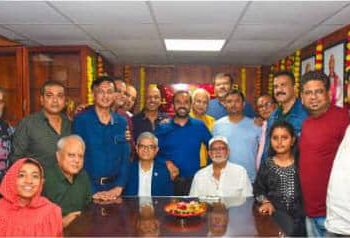Before I delve into the issue of workshops and allowances in this article, I will first cite a January 2005 opinion piece by Professor Oweyegha-Afunaduula. In his article titled “Who Is to Blame for the Failed World Bank Sponsored Projects in Uganda?” Oweyegha revealed that Ugandan ministers had become so fearful of the IMF and the World Bank—two of the country’s biggest aid donors at the time—that they no longer “feared God Himself.”
That boldness of the aging professor inspires me to again cite Ambrose Toolit, a PhD candidate, civil society worker, and a Karimojong, who was quoted by the Uganda Radio Network (URN) on 7th October 2025 questioning the management of money meant for the people of Karamoja. Toolit stated: “A big percentage of the Karamoja money is going into workshops, trainings, and allowances,” what he described as “software activities.”
To echo the sentiments of my fellow analytical thinkers, the reality is that a significant portion of funds allocated for vulnerable Karimojongs in the manyattas (traditional homesteads) ultimately goes to service providers such as food suppliers, stationery vendors, fuel providers, and consultants. There have been instances where I have doubted the proficiency of specific consultants due to the subpar quality of their work.
Some people might ask: Do these intellectuals mean that workshops, trainings, and allowances are of no value? The answer is beyond the scope of this article. However, the critical question remains: if we continue investing heavily in workshops and allowances, will we ever achieve tangible results in a region that, as Frank Emmanuel Muhereza (2019) observes, has ‘in relative terms succeeded in recovery but remains trapped in poverty, with people living lives of misery’?
If development is to happen in Karamoja, “software activities” must be reduced, and more investment directed toward tangible projects that can help the Karimojong settle and thrive within their homeland. As Sarah Musubika observed in her 2017 Master’s Thesis submitted at the Arctic University of Norway, titled “Behind the Scenes of Street Begging,” the Karimojong in Karamoja live in misery, and even those who migrate to cities such as Kampala end up in places unsuitable for both adults and children—lacking water, sanitation, and exposed to disease.
This justifies the reasoning of Ambrose Toolit—and shows why his position resonates with me.
Ayub Mukisa, PhD
Executive Director, Karamoja Anti-Corruption Coalition (KACC)
Email: ayubmukisa@gmail.com
Do you have a story in your community or an opinion to share with us: Email us at editorial@watchdoguganda.com














